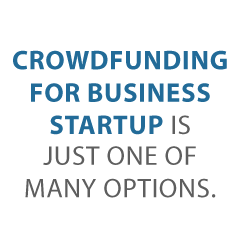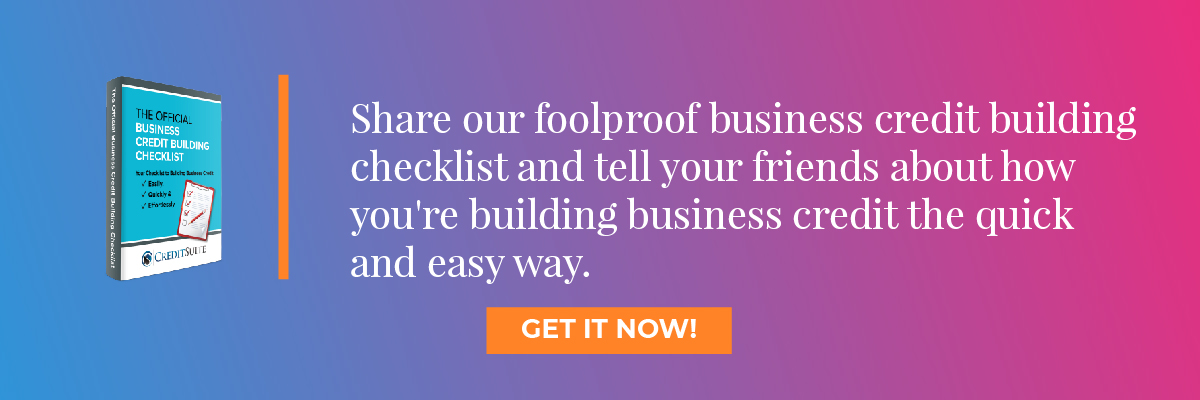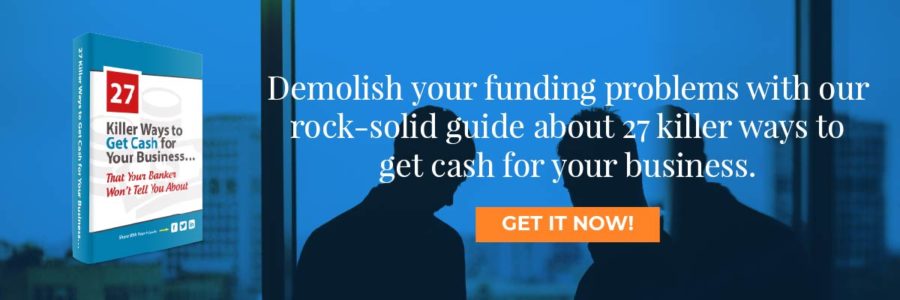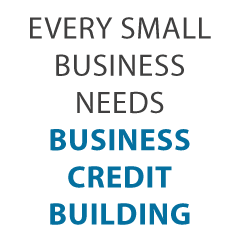
Do You Feel Lucky? Everything You Need to Know About Crowdfunding for Business
Crowdfunding for business startup is just one of many options. For some, crowdfunding is a foreign concept. In contrast, others know just what is happening. If you are looking to start a business with minimal debt, crowdfunding could be the answer. If you’re lucky.
Is Crowdfunding for Business Startup the Best Option or Is it the Luck of the Draw?
Still, it may not be the answer at all. First, it isn’t cost free, though it does have minimal costs compared to some other options. Truly, the main costs associated with crowdfunding for business are related to marketing your campaign in order to attract investors. Yet, other costs include any fees charged by the crowdfunding platform.
If you are lucky enough to meet your goal, you are golden. Just imagine, all you have to do is live up to your campaign promises and you have no debt related to those funds. However, if you do not meet your funding needs on the campaign alone, you are out those marketing costs and you still have to find additional funds. It’s a fine line to balance.
Get our business credit building checklist and build business credit the fast and easy way.
What is Crowdfunding?
The truth is, with crowdfunding for business, there is no need to limit yourself to just one or two large investors. You can find a lot of investors to fund your business a few bucks at the time. In fact, some even kick in as little as $5.
Crowdfunding is a good starting point for a new business. Still, it shouldn’t be relied upon completely. Truly, you need a backup plan. Unfortunately, only a small percentage of crowdfunding campaigns are successful. Furthermore, consider how the economy is doing before you rely too heavily on crowdfunding. If the economy isn’t strong, people will not be as likely to invest.
Crowdfunding Platforms
There are many crowdfunding platforms, but they aren’t all exactly the same. You have to check them each out and figure out which one will work best for your business. We’ll start with the two most popular options.
Kickckstarter
They are the largest crowdfunding for business platform. With over 14 million backers, they boast over 130,000 funded projects. These include products and services related to:
- Publishing
- The arts and film
- Comics and illustration
- Design and tech
With Kickstarter, you must have a prototype. In addition, projects cannot be for charity. However, nonprofits can use Kickstarter. Also, you are not allowed to offer equity in a company as a perk.
Other banned projects and perks include anything to do with:
- Contests and raffles
- Cures and medicines
- Credit services
- Live animals
- Alcohol
- Weapons
Creators collect a 5% fee on all funds. They also use a payment processor, Stripe, that applies payment processing fees (roughly 3-5%). Unsuccessful campaigns do not pay a fee. There are also fees of 3% + $0.20 per pledge. Pledges under $10 have to pay a discounted micro pledge fee of 5% + $0.05 per pledge.
Indiegogo
Indiegogo has over 9 million investors. The minimum goal they allow campaigns is $500. They charge 5% platform fees and 3% + 30¢ third-party credit card fees. It is important to note that fees are deducted from the amount raised, not the goal. As a result, if you raise more than your goal, you will pay more in fees. PayPal is not accepted.
Indiegogo is noteworthy because they offer flexible financing in addition to fixed financing options. So, if you do not make your goal and you chose flexible funding, you can at least hold onto what you collected. This is the opposite of how crowdfunding normally works.
You cannot change your fundraising structure from fixed to flexible, or vice versa, once the campaign starts. They recommend fixed funding if you need a minimum amount for your project. Indiegogo recommends regular communications to donors if you choose fixed funding.
RocketHub
RocketHub is better suited for those who need venture capital. They give you an ELEQUITY Funding Room. There, you can pitch your idea and see if it stimulates any interest from donors.
This platform is specifically for business owners working on projects related to:
- Art
- Business
- Science
- Social
If you achieve your fundraising goal, you will pay a fee of 4%. In addition, you’ll pay a 4% credit card handling fee. But if you do not reach your goal, then that fee jumps up to 8% plus the credit card handling fee. That means RocketHub is best for companies that
are more confident they will make their goals.
Get our business credit building checklist and build business credit the fast and easy way.
CircleUp
CircleUp aims to help emerging brands and companies raise capital for growth projects. However, companies must apply and show revenue of at least $1 million to get a listing on the site. That said, the platform will sometimes make exceptions.
CircleUp can be good for those who already have a somewhat established business. That includes business owners who want both funding and guidance in order to take their businesses to the next level.
If your business gets approval for listing on CircleUp, the fee percentage comes from the total amount you raise.
GoGetFunding
GoGetFunding has been around since 2011. They let fundraisers keep the money they raise, regardless of whether they meet their target. If your business idea is unproven and you are unsure of whether you can meet your funding needs with a crowdfunding for business campaign, flexible funding can be a great option.
They charge a 6.9% fee. This is pretty high, but it includes both the platform fee and the payment processing fee. Therefore, it is actually more cost-effective than many other crowdfunding for business options.
Crowdfunder
With Crowdfunder, investors purchase equity in promising companies. They consider campaigns to be deals, and its donors are investors. Basic listings are $449/month. Self-start listings are $499/month. Self-start plus is $999/month. In their community, there are over 15,000 investors and 200,000 startups.
Fundable
This is a crowdfunding for business platform that allows companies raise funds from investors, customers, and friends. They have over $80 million in funding commitments.
Fundable does allow equity campaigns. Also, they charge $179 per month to raise funds. Fees on rewards are: 3.5% + 30¢ per transaction. They do not charge success fees.
Fundly
Fundly allows for crowdfunding for creative ventures. If your business has a creative lean, this might work for you.
There is no minimum amount to fundraise or to keep money you raise. You can usually withdraw payments within 24 – 48 hours of the donation. In addition, they offer automatic transfers. It is free to create and share an online fundraising campaign.
Yet, Fundly will deduct a 4.9% fee from each donation you get. A credit card processing fee of 3% is also taken out from each donation. Also, there are nonspecific automatic discounts for larger campaigns.
Successful Crowdfunding Campaigns
A lot of times crowdfunding for business is not successful. There are some campaigns that find their proverbial gold at the end of the rainbow however. Consider these examples.
Pebble SmartWatch
They actually have more than one of the top 10 campaigns ever on Kickstarter. Their 2nd campaign is one of the highest funded ever. It hit over $20,000,000. That’s not too bad considering their goal of only $500,000.
They eventually sold to FitBit.
FlowHive
The FlowHive Indiegogo campaign caused quite a buzz. The idea was to find a way to get the honey from bees without causing the bees harm.
Traditionally, they just break open the hives to get honey. However, this process can kill the bees. FlowHive developed a fake hive. It is made from reusable plastic. Bees make honey in it, and the honey flows out through a spout. The bees are safe and fresh honey is readily available.
It seems beekeeping is growing in interest. This campaign raised $14,000,000. Though they won’t let on as to what the exact numbers are, those in charge say they are still turning a profit.
Get our business credit building checklist and build business credit the fast and easy way.
CoolestCooler
The coolest cooler was a super cool Kickstarter campaign that brought in over $13,000,000. The cooler had bluetooth and a blender among other things. Investors got one for their donation toward the cause.
This campaign did run into some trouble when it wasn’t able to deliver rewards as quickly as promised. There was actually a lawsuit. In the end, everything worked out and everyone got what they were promised.
The CoolestCooler group says they are glad to put that behind them and get back to work. You can still buy one today.
Kingdom Death Monster 1.5
A lot of people jumped in on this one, to the tune of $12,000,000 on Kickstarter for this surprisingly popular board game. It did take a while to get going, but investors finally got their copy. After production was over, resale values skyrocketed upwards of $1,000 per game. A later campaign promising updated material did just as well.
BauBox Travel Jacket
This jacket boasts 10 different design elements, like a drink holder and a neck pillow. They raised over $11,000,000 across 2 campaigns. While it had a rough start, including the jacket being available on retail sites before investors even got theirs, it is still selling today.
How to Launch a Successful Crowdfunding for Business Campaign
There is no such thing as guaranteed success. Luck truly has an awful lot to do with it. In lieu of catching a leprechaun however, these steps can help make sure you give yourself the best chance possible when it comes to crowdfunding for business.
Do the Research
You have to know your market and what demand looks like. The only way to find that out is to research. Figure out how much money you actually need before you set your goal. Lots of business owners have started crowdfunding campaigns only to find the demand isn’t there or their goal fell short of the actual need.
Create a Prototype
For products, you need to have a sample to show investors. This is important. People are much more likely to let go of money if they can see something tangible. This is so vital that Kickstarter actually mandates that you to have a prototype to show potential investors
Consider Your Platform
Once you know who your target audience is, you can determine if you would be best served by Kickstarter, Indiegogo, or another successful platform that is not as well known. If your audience doesn’t use the platform you are on, it won’t matter how great your idea or product is. They’ll never see it.
Give Awesome Incentives
This is huge. Be sure you can deliver on your promises. Yet, don’t give away the company. Still, if someone one is going to help you get started, they deserve something amazing. Offer more than a thank you note. Be bold with what you offer as a reward for their support, without harming your success.
Set a Goal
Setting attainable goals is necessary to success. Make certain you look at the numbers in relation to actual facts before you set a fundraising goal. Be certain you have production facilities on the line that can meet the timeline goals. Do not randomly set goals with no clue what it will take to reach them.
It’s All in the Marketing
You can’t just willy nilly throw a campaign together. If you create a video, it needs to be professionally edited. Any social media should be specifically targeted toward your audience. If they are a cheesy, audience, then that is how your social media and videos need to be. A more sophisticated audience will need a different feel.
Be Realistic About Crowdfunding for Business
Keep in mind, when it comes to crowdfunding, you need a backup plan. Don’t count on rainbows and leprechauns. Honestly, there are far more unsuccessful campaigns than there are successful ones. In fact, competition is fierce. It’s definitely worth trying, but remember that you are likely going to need other types of funding as well.
Finally, you need to work on building fundability. That is the ability of your business to get funding. Everything from traditional business loans to business credit cards and lines of credit require a business to be fundable for approval. Furthermore, part of being fundable is having great business credit, which also requires a specific process to build. Do not neglect fundability and business credit while your crowdfunding campaign is running. Those funds will only last so long, if you even get enough to get started.
The post Do You Feel Lucky? Everything You Need to Know About Crowdfunding for Business appeared first on Credit Suite.





